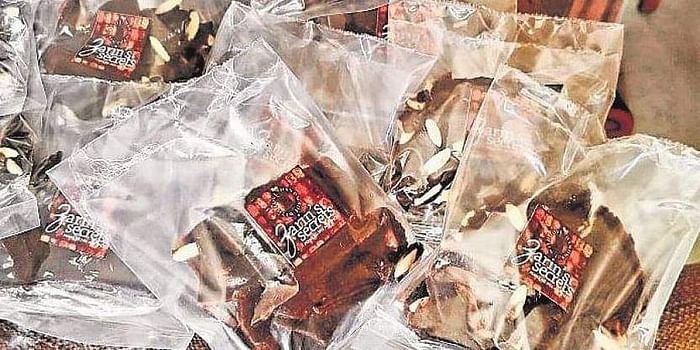Taking the Parsi culinary legacy forward
Inspired by her grandmother’s kitchen secrets, Gurugram-resident Shelley Subawalla attempts to keep the Parsi culinary tradition alive and accessible through her venture
In this fast-paced world, where food can be ordered by a swipe of the finger, home-cooked meals still hold a special place in the hearts of many. While restaurants present a vast array of options to choose from, they pale in comparison to every single dish made by your grandmother when you were young. These dishes often celebrate cultural heritage; they are not just food but a window into the family’s past and the traditions of the community.
Drawing from this nostalgic feeling as well as her Parsi legacy, Shelley Subawalla from Gurugram decided to launch a business that focuses on authentic Parsi ingredients and recipes by her maternal grandmother. Zarin’s Secrets, which was founded in 2015, aims to revive old Parsi recipes. Named after her grandmother Zarin Gimi who Subawallamentions, “was an epitome of Parsi food”, the venture deals with the making and selling of authentic Parsi spices and condiments. “Our community is very small and dwindling in numbers. I wanted to do something that would keep my community’s culinary heritage alive,” she says. Operating from her home-kitchen, Subawalla commenced her journey with four of her grandmother’s spice recipes. Now, the 45-year-old entrepreneur sells a host of spices and pickles that follow recipes retrieved from other Parsi families.

Busting the myth
“Many people believe our food is very exotic and difficult to prepare. I wanted to prove them wrong,” says Subawalla. Providing recipes of dishes with packed condiments, she attempts to introduce Parsi food to every household. Along with dry spices, she also sells traditional Parsi kebabs and wet paste spices, to make it easier for her consumers as they only have to add the protein and salt to create an authentic Parsi dish. Collaborating with two courier agents who handle her shipments, Subawalla sells these spices globally to all seven continents at an average price range of `400 for 250g. The packaging is of utmost importance; she points out that she uses unbreakable jars to make sure the spices reach her customers safely.
All her spice blends are created using homemade natural preservatives. During the lockdown, Subawalla also began Frenny by Zarin’s Secrets, a venture that she named after her mother, wherein she curates and sells spices from different regions of India.
A household favourite
Zarin’s Secrets gained popularity through social media channels, as well as by word of mouth. “Because of this, a lot of people started showing interest in these dishes, which they previously thought were difficult to cook. With Zarin’s, these dishes are brought to their houses,” Subawalla points out.
Gurugram-resident Urvashi Sidhwa, who is originally from Aurangabad, mentions that most of the spices she uses are from Zarin’s Secrets. “We Parsis have a very particular kind of flavour in our food. Zarin’s is as good as what my mother and grandmother used to make. Finally, there is someone who makes authentic Parsi spices in Delhi,” Sidhwa concludes.
Food for the soul
Parsi food and cuisine is critically shaped by their religion, Zoroastrianism, as well as its attitude towards the body and sensual pleasure. They place great emphasis on the pleasure that the body derives from food. The Parsi spice blends are a mix of at least 15, if not more, different spices. For example, the Dhana Jeera is a spice created by combining 20 spices.
Source: View Here




